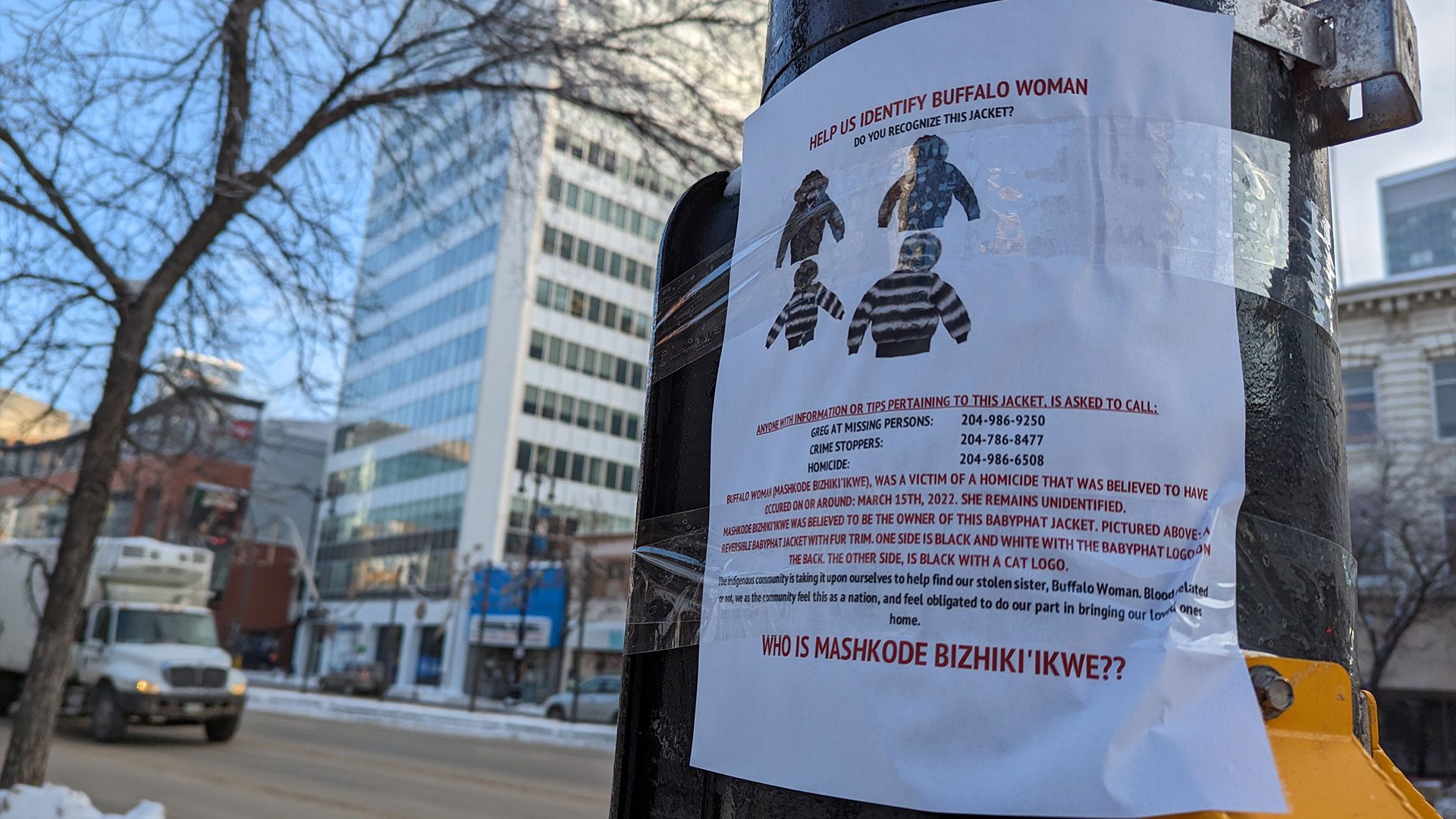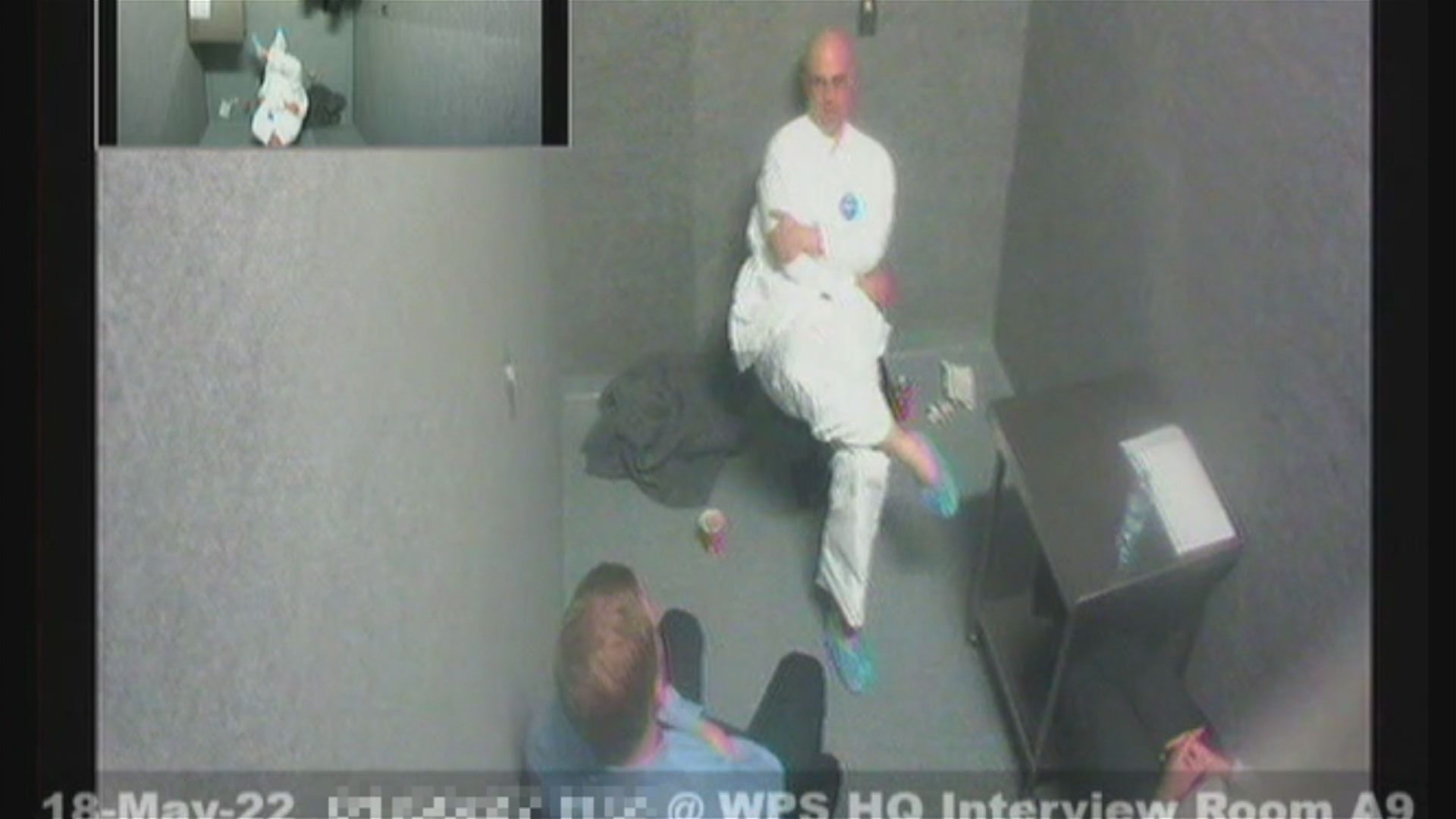Warning: This story contains details from a murder trial. Please read with care.
A moving gesture followed Thursday’s damning testimony by Jerry Skibicki’s ex-wife.
When her evidence concluded in his quadruple homicide trial, the 44-year-old Métis woman privately received a First Nations star blanket from the daughter and cousin of victim Morgan Harris, 39.
The traditional First Nations gift acknowledging honour, respect and achievement in this case recognized her courage in facing whom court heard was her tormentor.
During several hours on the witness stand, the woman described details of an abusive relationship with Skibicki, 37, that mirrored some of the violent acts he confessed to inflicting on Harris, Marcedes Myran, Rebecca Contois and unidentified victim Mashkode Bizhiki’ikwe (an Ojibwe spirit name meaning Buffalo Woman) two years ago.
Court has been told Skibicki stalked the victims at homeless shelters, lured them to his home where he sexually assaulted and forcibly confined them, and either strangled or drowned them before throwing their remains in the garbage that ended up in landfills. Two women were dismembered.
But Skibicki, who was arrested on May 17, 2022, has pleaded not criminally responsible due to a mental disorder.
Read more:
Staffer testifies serial killer said he went to homeless shelter to find a victim
There is no publication ban on his ex-wife’s name, but her mother asked reporters not to print it.
The dark-haired woman said she met Skibicki at a Winnipeg homeless shelter on Feb. 1, 2018 after being released from jail. She said she was struggling with an addiction to crystal meth and awaiting a bed for the night at Siloam Mission, when he and two of his friends approached her.
She agreed to go to his apartment where she said the other men soon left her and Skibicki alone.
“I like this one,” she said he told his friends.
He gave her the nickname “Squishy.”
In the few weeks they spent together, she said he became angry, demanding and controlling.

A missing persons poster for Buffalo Woman, an unidentified victim of admitted serial killer Jeremy Skibicki, in downtown Winnipeg. Photo: Josh Grummett/APTN News
When she left to live in her own apartment, she said he caused disturbances and threatened the building manager. She was told to move out.
She returned to him and endured sexual, physical and emotional abuse, she said in a firm but quiet voice.
Skibicki, 37, has never been convicted of an offence involving his ex-wife and his criminal responsibility for four, first-degree murder charges has not been proven in court.
When he proposed marriage in a pharmacy she accepted. “I felt stuck,” she said.
She claims she was routinely sexually assaulted – even while sleeping – because of something he called “Sleeping Beauty syndrome.
“He had a fetish for Sleeping Beauty,” she told Court of King’s Bench Chief Justice Glenn Joyal, noting Skibicki would get mad if she didn’t take the sleeping “bed medication” prescribed for post-traumatic stress disorder and punish her with “anal sex” the next day.
“I had no idea … if that was a real thing or not,” she said of the fetish.
Essentially, he liked to have sex while she was “limp and lifeless” like a “rag doll,” she said.
Crown prosecutors have said Skibicki had sex with his victims after he killed them. They have described his crimes as “intentional, purposeful and racially motivated.”
His ex-wife said he held a pillow over her mouth and nose three times, and choked her with his bare hands. He came at her with a knife, she said, and bragged her dead body would never be found.
“The wife has to listen to the husband no matter what,” she said he told her.
Police found a hunting knife in his apartment with the DNA of more than one victim.

She said he claimed to have implanted a “chip” in her leg to monitor her movements, and alleged police were the ones killing Indigenous women in Winnipeg. She said he was active on the dark web and Facebook under different names, and regularly played video games.
“He would keep me (in his home) and spit on me and laugh at me,” the woman said. “I sat there naked for a few days.”
She said they got married while she was high on meth and never saw him take any medication – only marijuana.
She told Crown attorney Christian Vanderhooft she became pregnant twice – losing the first one and terminating the second.
She went into addiction treatment and said she began to realize the danger she was in. She obtained a protection order a year after their Sept. 4, 2018 wedding.
But with nowhere else to go, she returned to Skibicki with one important change.
“I got more protective of myself,” she said, “… more in contact with family … let them know where I was.”
She finally left him for good in March 2021.
But court heard they remained in contact, messaging via Facebook.
Read more:
Surprise plea: Jeremy Skibicki admits to killing 4 Indigenous women
Her evidence is important in establishing “a modus operandi in the perpetrator,” said Vanderhooft, who has told court Skibicki targeted vulnerable Indigenous women.
About a year later, the woman said Skibicki’s messages got darker and she developed a bad feeling.
She said she prayed for him.
And decided to call him.
“He said to me that he couldn’t tell me what he did … not even on his deathbed would he admit to it.”
He asked for her forgiveness, she said, suggesting he could end up doing three life sentences.
He was arrested shortly after that phone call, court heard.
Defence lawyer Leonard Tailleur quizzed the woman about Skibicki’s state of mind.
“You said he had narcissistic traits,” he said. “… Didn’t he say he had a direct line to God?”
The lawyer suggested his client was keeping a close eye on her because he believed she was being trafficked for sex.
He also said Skibicki had been abused “by Catholics” while growing up.
The trial is scheduled to resume Friday.
Support is available for anyone affected by these reports and the issue of missing and murdered Indigenous people. Immediate emotional assistance and crisis support are available 24 hours a day, seven days a week through a national hotline at 1-844-413-6649.










